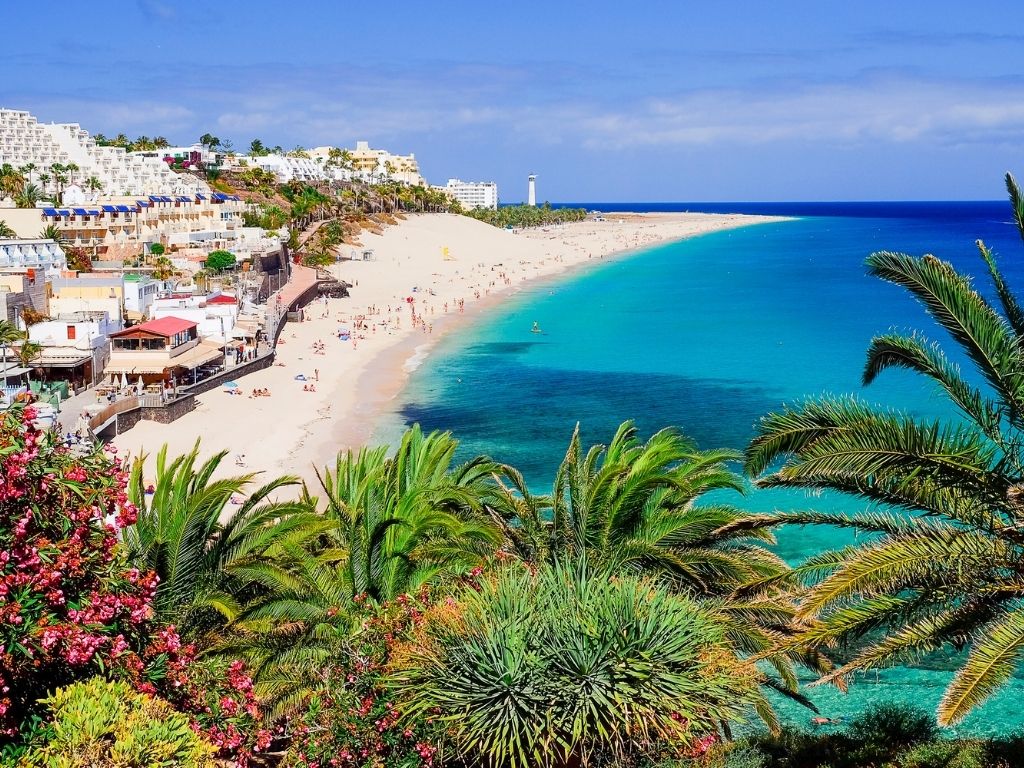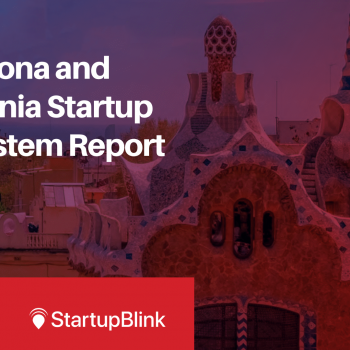
Startup ecosystems are on the rise globally and it is equally relevant for various types of players. Entrepreneurs are looking for the ways to boost business and social life with new opportunities and connections, governments are trying to promote local economy through ecosystem development practices, corporates want to find a place to open a new branch, and all the other players in the ecosystem, including coworking spaces and accelerators too, are coming with their individual goals and play their role to succeed. Startup ecosystem is a chain composed of unique players that cannot survive without one another.
So, what makes good startup ecosystem?
A good startup ecosystem, as Startupblink research affirms, can be determined using unique algorithm. Such research ranks more than 1,000 locations globally and you can download it here to find out where your city ranks.
But just everything else in life, before any mathematical formula is applied, there are naked-eye-visible elements that can distinguish a healthy ecosystem from a sleepy one. Such ecosystem includes a nurturing environment that provides constant opportunities of connecting with other members during dozens of events, have different resources available for use and every player can perform its unique role.
Hence, in this article we would like to discuss the main players and roles that exist in startup ecosystems, including startups, coworking places, accelerators, community leaders, governments, and corporates.
Startups
As the title employs, an important part of startup ecosystems are startups themselves. Every startup community firstly starts with passionate entrepreneurs that come together, share their passions, ideas and goals and try to connect with the like-minders. Then, usually caught by the idea an entrepreneur decides to join already existing project as a co-founder, or collaborate with his ideas and create something new. With the help of other resources available on the ecosystem, they establish a startup company.
Such companies are the main goal of startup ecosystem. Highly motivated entrepreneurs find themselves in places where their full potential can be used, as well as meeting and possibly collaborating with other professionals. Not even mentioning all the resources available for a stable development of your idea, including accelerators, incubators, coworking places, corporates, governmental institutions and several others.
Coworking places
Coworking places are as popular as never before and that is due to a globally growing startup ecosystems. They are great indicator of ecosystem success as privately owned coworking companies would not take a risk in opening an office space in a sleepy location with not enough critical mass to sustain their businesses.
Increasing number of freelancers, startups, entrepreneurs and digital nomads choose coworking offices for daily work and events as it is usually the most vibrant spot of the whole startup ecosystem gathering all the great minds. On top of that, it is a place for sharing and connecting with new people or scheduling a business meeting.
Coworking places are no longer used for work only, startup ecosystem players enjoy attending entertaining, yet informative events, whether it is a presentation of a new accelerator program, project or a talk from a successful entrepreneur. Other than that, there are some places that conduct other socialization events, like wine and cheese tastings, baking workshops and more.
One of the best ways to know what coworking spaces are in your city is to use Coworker, directory listing over 9,000 coworking spaces in 160 countries, with world’s best known coworking chain WeWork boosting with 477 office locations in 95 cities around the world.
Accelerators
Every healthy startup ecosystem needs accelerators to provide specific resources that could foster both entrepreneurs and startup founders. Accelerators are there to support early-stage companies through education, mentorship and financing. Usually, they offer fixed-time programs during which a startup is put in front of an intense process that aims to cover years worth knowledge in comparably short time.
Accelerators are especially valuable for startup founders who, in most cases, are not financially sufficient and are looking for the ways to launch. By joining an accelerator program, a startup founder is entitled to all the resources and professional services like consultation, branding, fundraising, in return for 6-12% of equity. They aim to grow company in size, as well as value, and prepare it for bigger investments.
Some of the most well-known accelerators are Y Combinator and Techstars. Y Combinator is one of the world’s most active accelerators and invested so far in more than 1,400 companies and runs a twice a year program. Among their unbrought projects are many successful startups, like AirBnB, Dropbox, Reddit, Stripe and Coinbase. Another general accelerator, is Techstars that was started in Colorado, United States, and has hence expanded to Europe, Asia, Africa and Australia. In the list of nurtured startups appear companies like SendGrid, Plated, DigitalOcean and Graphic.ly.
Community leaders
Every startup ecosystem has 1 or more connectors that are more active and lead the system. So called community leaders are entrepreneurs themselves; consequently, they are familiar with the needs and difficulties that players face, and can assist them in connecting with the right sources.
A great leader feels comfortable networking with numerous entrepreneurs, mentors, investors, and business experts. Running and attending industry events helps to attract talents to the startup ecosystem and building a collaborative circle that can turn into a forceful business power afterwards.
It is important that the leader is a trusted source and can unite the community. Innovation is feasible only when collaboration is present. Therefore, it is necessary to create as many opportunities as possible within a community to share knowledge and skills, as well as make the information and resources available for every entrepreneur for ultimately reaching success.
If you are passionate about your local startup ecosystem growth and believe that you could lead it with great responsibility and dedication, you can join our StartupBlink City Partnership where you will be a connector and connect to thousands of startups, coworking spaces, accelerators and tech reporters registered on the map.
Government
A healthy startup ecosystem has less chance of existence without support from local governments as some bureaucratic norms may impede its’ activities. The government has to either not impede or facilitate the ecosystem activities. There are several ways a government can ease the burden of startups, including making better policies, reducing tax weight, facilitating the migration of talented workers and developing favorable infrastructure.
Therefore, the government has to encourage a culture of innovation by creating programs and educational institutions which act as talent pool in the economy. Such programs encourage young talents to develop their careers locally and, thus, raise the standard of living and economies of their countries.
In our previous article, we have discussed some of the best examples of governments that succeeded in making their startup ecosystems successful. There we present some countries, including Estonia, Israel, Portugal, and others, together with their startup initiatives that facilitate the life of founders.
Corporates
Attracted by the innovation, corporations decide to establish in a city with a high track of startups activity. The majority of global startup hubs have the presence of such worldwide known corporations, like Google, Intel, IBM, Microsoft, etc. that are rich in resources, and constantly need all sorts of services.
Corporations get more and more involved in startup activities because they know that such companies are the main source of innovation. As big corporations have large pockets but often struggle to innovate, startups, on the other hand, are usually low on financial resources but are always creating new technologies, processes, and products that corporations find appealing. Hence, corporates often end up acquiring a startup or investing heavily in them and then using their disruptive and innovative ideas.
Definitely, both sides benefit from such a relationship, and so, the whole startup ecosystem, with the resources on hand, flourishes. You can find more about the impact such corporates have on startup ecosystems by reading our blog post where we discuss reasons why collaboration makes sense for each party.
To sum up, startup ecosystem is a chain of unique players that each has its individual role and by interacting together, create new startup companies. A healthy startup ecosystem provides constant opportunities for connecting with other members, meeting potential clients and investors.
One of the things we do is the StartupBlink yearly report that ranks startup ecosystems across 954 cities and 125 countries around the world. It aims to feature and rank hundreds of startup hubs instead of highlighting a few globally recognized winners. This report considers not just startups, but also other critical players of the startup ecosystem like coworking spaces, accelerators, investors, leaders, and more. If you are interested in preparing your own city startup report please contact us to find out how we can feature you and your project.





